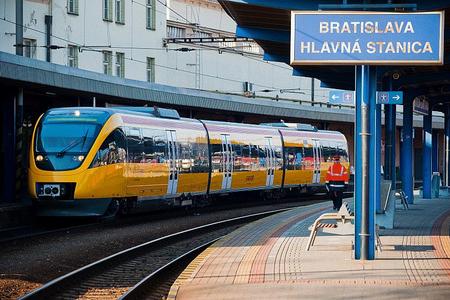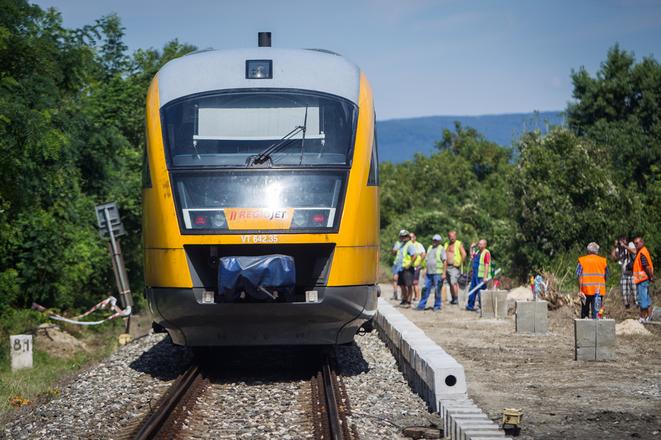More than half of the inspected trains on the Bratislava-Komárno route have less capacity than they should have according to the latest Transport Ministry’s inspection of private carrier RegioJet, which operates trains with a state subsidy on this route, the TASR newswire reported.
While the contract between the state and the carrier states that the train set has to have a total capacity of 500 passengers, the inspection found trains with the capacity of only 320. Such a reduction of capacity is a breach of the contract which is also reflected in passengers’ dissatisfaction, said Transport Minister Árpád Érsek.
“The Transport Ministry fully reimburses RegioJet’s operation costs and maintenance for a total of 12 trains and passengers have a right to the trains that the state orders from private carriers and pays for,” Érsek told TASR.
The ministry explained that the inspected trains did not have two but only one set of carriages. The carrier also used so-called nostalgic carriages which do not meet the agreed contractual quality standards such as design speed of at least 120 kilometres per hour, upholstered seats, the capacity to transport prams and bicycles, toilets for people with reduced mobility, passenger information systems and air conditioning.
As a result of the inspection, the ministry urged RegioJet to publicly apologize to passengers and promptly remedy the situation. Although the ministry understands the current difficult situation of the carrier, lowering the quality of travel is not permitted, said ministry spokeswoman Karolína Ducká.
“The carrier can still use other solutions and rent quality carriages from other carriers,” said Ducká, as quoted by TASR.
Carrier lost third of sets in six months
RegioJet responded by saying that over the long term the transport ministry has declined to order a rise in the capacity of the train sets according to its contractual obligation, which caused the overcrowding of trains. In addition, the ministry does not act in a fair manner and “tries to notably harm RegioJet,” said RegioJet spokesman Aleš Ondrůj.

On December 15, RegioJet presented its proposal to solve the situation and informed the ministry about its readiness to deploy additional sets on crowded trains. Ondrůj pointed out that during the last six months, the carrier lost three of 12 sets, through no fault of its own, with a total loss of more that €4 million. While the original contract required 10 sets in operation and two backup sets, the ministry wanted to increase the capacity and RegioJet agreed to a daily operation of all 12 sets without backup, he said.
“Though the operation without backup is not stable, we have gone out to meet the ministry‘s desire,” said Ondrůj, as quoted by TASR, adding that in the case of the national railway operator ZSSK the ministry tolerates and pays operating backup of to up to 30-40 percent.



 Subsidized train of RegioJet on the track between Bratislava and Komárno. (source: Sme)
Subsidized train of RegioJet on the track between Bratislava and Komárno. (source: Sme)